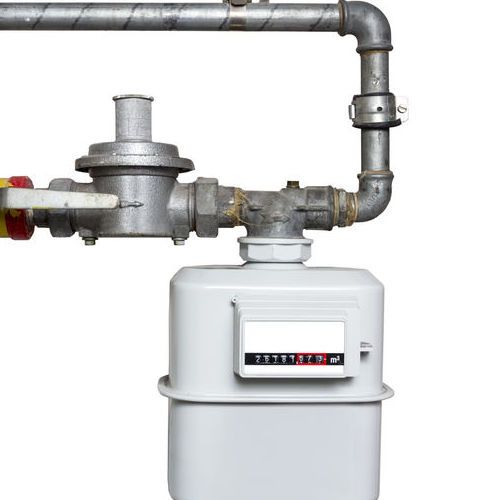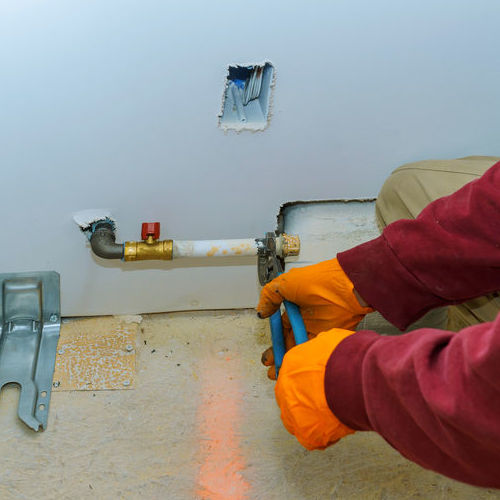
Gas line for house
Natural gas is a great resource for energy. If your home runs on natural gas or you have gas appliances like stoves or water heaters, you know they run on a clean, efficient source of energy. Because gas is clean and inexpensive, you may want to add a new appliance to your home. Whenever you switch from electric to gas or add a gas appliance like a water heater or gas stove, you will need new or extended gas lines for your home. In some cases, installing new gas lines will require a retrofit of the piping in your home.
Who can install a gas line?
While it’s possible to install a gas line yourself, it’s not recommended. Primarily, this is a safety issue. While you might have experience installing appliances and piping, a lot of care has to be taken to install a gas line. It can be dangerous to install a gas line. The gas line installation has to be precise and meet any home safety codes.
Preferably, you should have either a trained master plumber or trained HVAC technician install a gas line. When hiring a professional for gas line installation, make sure the professional is insured.
Gas line contractor
There are gas line plumbing specialists, trained and licensed to run and repair gas lines. These plumbers can install water heaters, gas furnaces, fireplaces, stoves as well as outdoor lines for gas grills. They will also install the gas line to the gas meter.
When you hire a gas plumbing specialist for gas line installation, make sure that plumber has a license and is insured. When you need a gas line contractor in Dallas, TX for installation or gas line repair, you can rely on the expertise of Tribeca Plumbing, Inc.. Our plumbers are licensed and insured, so give us a call at (214) 402-5454.
How do you plumb a gas line?
If you are planning to plumb the gas lines yourself, here are some tips that should keep you safe:
Gas line installation tips:
- Get the right size pipes.
- Turn off the gas before installing anything.
- Extend the existing gas line by fitting the right pipes and valves that will reach the appliance.
- Use a flexible pipe.
- Test the air tightness of the line.
- Once the line is fitted properly, turn the gas back on to test the flow.
Again, it’s preferable to have a professional to install your gas lines. The construction of your home could play a role, especially if you have a cool roof that streamlines the energy efficiency of your home.

How much does it cost to put in a gas line?
Costs to put in a new gas line will vary, depending on such factors like length of the line put in, the type of pipe used, the location of the pipes and the number of turns required. In addition, labor costs will need to be factored in.
In most cases, expect to spend anywhere between $120 to $1,350 for most gas line installations. A gas stove installation might cost just $120, whereas a gas water heater hookup could cost anywhere between $200 to $5,000, depending on the length of the line installed. Labor costs will run from $45 to $150 per hour for a master plumber. Connections from the street or main line to your house or business may cost more, depending on where you live and how much line is being connected.
What kind of pipe is used for gas lines?
Three types of pipes are used when installing gas lines: steel, copper, and brass. Black steel is the most commonly used. In some areas, using other varieties of metal such as copper is prohibited. In some cases, plastic piping has been allowed. Plastic piping, however, is primarily used in commercial projects. Before installing a gas line, you should always find out what materials are accepted in your area.
Where is the gas line in a house
Knowing where your gas line and shut off valve is in a house is essential, especially if you ever need repairs or there is a leak in the gas line. Anytime you plan to install or repair a gas line, you should shut the gas off first.
Finding the main shut off valve for a home gas line is relatively easy, as the main valve should be next to the gas meter. The main shut off valve is also known as the street-side valve. For safety’s sake, utility companies usually prefer you not shut the gas off at the street-side valve. Rather, shut the gas off at the house-side valve. The house-side valve is usually located near where the line first enters the house.
Can gas line run through chimney
No, it is not safe to run a gas line through a chimney.
Gas line and fittings
While home supply stores and hardware stores may have kits available to connect gas lines to appliances, you must make sure the fittings are the right size. Always make sure to shut off the gas before connecting fittings to the line.
For reliable gas line installation in Dallas, TX give Tribeca Plumbing, Inc. a call at (214) 402-5454.

